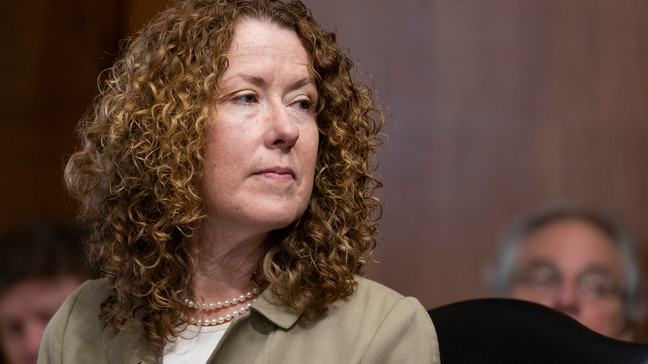OPB recently broke a story about unique developments in the Bundy/Malheur Refuge case that provide several perfect examples of the kind of lack of transparency that I’ve been talking about, not to mention common distortions by the mainstream media. This is a follow-up to my previous BFP piece about the lack of transparency in the so-called justice system.
 I’ll start out by discussing the media distortion issue first. In the article, the OPB headline asserted that the Bundy defendants had received “special privileges” to have unmonitored meetings with their attorneys to help prepare for their upcoming trial. From my perspective, this characterization is a total distortion of what is really going on.
I’ll start out by discussing the media distortion issue first. In the article, the OPB headline asserted that the Bundy defendants had received “special privileges” to have unmonitored meetings with their attorneys to help prepare for their upcoming trial. From my perspective, this characterization is a total distortion of what is really going on.
The reality is, Judge Jones was making reasonable accommodations to help ensure compliance with constitutional requirements. A more appropriate description would have been “Judge grants special accommodations under circumstances to ensure constitutional right to legal counsel.” Another way to phrase it might have been: “Court takes action to help ensure that, under the unique circumstances of the case, Defendants’ civil rights are not violated,” (and hopefully avoid appealable errors). Or, here’s yet another possibility: “Based on Multnomah County Jail’s questionable attorney/client communications practices, judge takes action to help ensure effective right to legal counsel.”
One of the biggest challenges is with the characterization “privileges.” The distorted notion that these defendants received some special privilege in this regard doesn’t hold water. And it is not consistent with what Judge Jones said. He said they received “special accommodations.” To characterize what happened as special privileges is the functional equivalent of making special accommodations, under applicable circumstances, for someone with a hearing impairment or other physical handicap, etc., and call such accommodations “special privileges.” As in this case, such a description is a distorted and misguided characterization.
Granted, the Bundy/Malheur case is unique. It involves multiple defendants, and multiple attorneys. It will require special accommodations to ensure compliance with constitutional requirements. Special accommodations are not the same as special privileges. This isn’t doesn’t even involve “privileges.” It involves fundamental constitutional rights. Everyone is entitled to such accommodations as are reasonably necessary to ensure constitutional compliance and protection of these rights. Moreover, because it appears that these particular defendants are being treated essentially as political prisoners and enemies of the state, they are apparently concerned about obvious government eavesdropping (which everyone knows is already happening at level, let alone a high-interest situation like this one), and their ability to have unmonitored, confidential communications with their attorneys.
And just to explore this issue a little deeper, it is my understanding that any and all attorneys or other parties (including me) who have had anything to do with this particular case (the Bundy/Malheur case) or related parties are subject to very invasive electronic surveillance. Speaking of transparency, because of this unprecedented level of electronic spying – even on attorneys’ communications with their clients – from what I understand, the government has purportedly undertaken the unusual step of implementing what is referred to as a “taint team” that is supposed to be scrubbing all information made available to the prosecutors to supposedly prevent the disclosure of confidential communications between the defendants and their attorneys. So in short, one team of federal domestic spies are monitoring all the parties’ communications, including the communications of court-appointed attorneys, while another team of federal good Samaritans are trying to make sure the information the other team has access to isn’t being misused for criminal prosecution purposes. Doesn’t that make you feel better?
I’ll have to confess that the thought that regardless of what I might want to think, I have zero privacy, and it’s not just God watching my every move gives me a lot to think about. But I try to take comfort in the fact that to the extent any of my communications with any of the subject parties or their attorneys are covered by attorney/client privilege, there is someone out there who will dependably and good-naturedly ensure that those communications won’t be shared with the prosecutors. It gives me warm and fuzzies just thinking about it.
Despite all the legitimate justifications for the communications arrangements, in attempting to finally disclose and explain the special attorney/client communication arrangements made available to the Bundy defendants, Judge Jones has now said some things that ought to be a concern for a number of reasons, and in this part of his explanation he does use the words “privileges,” and “special treatment,” which I find to be both troublesome and problematic. He said:
“Initially, I chose to keep these special accommodations off the record to avoid publicity based on advice from the Multnomah County Sheriffs office and the USMS suggesting that the special treatment might pose a danger to these defendants and influence other inmates at the jail to request similar privileges.
So, in a nutshell, what we have here is a federal judge making off-the-record legal decisions, based on secret meetings, and ex parte advice from a county sheriff’s office, and the US Marshall Service, and keeping the whole thing under wraps “for weeks.” It looks more like months actually. And a big question revolves around why on August 4th, over two months later, Judge Jones would finally provide a carefully worded “declaration” disclosing the whole thing. There is no question that how he has handled the whole situation has a tendency to raise suspicion, prompt speculation, and make the whole situation appear to be much more “special” than it actually is, and raises all kinds of questions. It is genuinely unclear why he didn’t just take an open, transparent, straight-forward approach. But of course that would have deprived quite a few people of something “special” to fuss about.
Regardless of all those issues, this is a perfect example of lack of transparency in the judicial system, and why it is so problematic. In my view, the explanation Judge Jones provided raises more questions than answers, and the approach he chose to take has caused more problems and issues than he was purportedly seeking to avoid. While we’re talking about Judge Jones, however, I also want to say something about one of his other rulings.
During a recent hearing addressing pre-trial detention, Ammon Bundy’s attorney, Marcus Mumford, outlined some of the defenses and legal theories he intended to assert, including adverse possession. He said that the Malheur occupiers, including Bundys, were seeking to stake an adverse possession claim at the refuge. My understanding of the argument was that he was seeking to assert the fundamental principles involved in an adverse possession claim, and then seeking to attempt to apply those principles and concepts to the situation at the refuge, in the form of a defense explaining why Bundys were doing what they were doing at the refuge. Judge Jones quickly, and seemingly off-the-cuff, rejected the argument, however, and ruled that it is not possible to make an adverse possession/use claim against the government.
The point I want to make in that regard is that Judge Jones’ blanket observation is not entirely true, and he seemed to be very hasty in rejecting the conceptual principles. It is worth noting that these principles were not being asserted affirmatively, seeking to have the court issue a ruling that the occupiers were legally entitled to some sort of decree of adverse possession. Instead, the principles were being asserted as a defense, to help explain their motives and what they were thinking – which seems to be relevant, especially in light of latent assertions that they were not only seeking to impede federal officers, but that they were also conspiring to overthrow the federal government. If, however, they can show that what they were really trying to do was assert an adverse possession claim — even if they were wrong in their reasoning — it could change the equation, particularly with respect to intent.
In terms of exploring and applying the principles involved in an adverse possession claim, it is useful to note that the whole concept of RS 2477 rights-of-way across federal land is based on grandfathered adverse use and prescriptive rights principles. So there is some precedent for application of the principles.
But if all this leaves you scratching your head, you’re not the only one.
# # # # #
Todd Macfarlane is an attorney, rancher, writer, political activist, conservationist and commentator. Although he is comfortable wearing several different hats, beyond faith, family and grass-fed livestock ranching, his primary interests include natural law, property rights, western land-use, political policy, and what he often refers to as the “so-called justice system.”
RANGE / RANGEFIRE! — Addressing Issues Facing the West / Spreading America’s Cowboy Spirit Beyond the Outback



